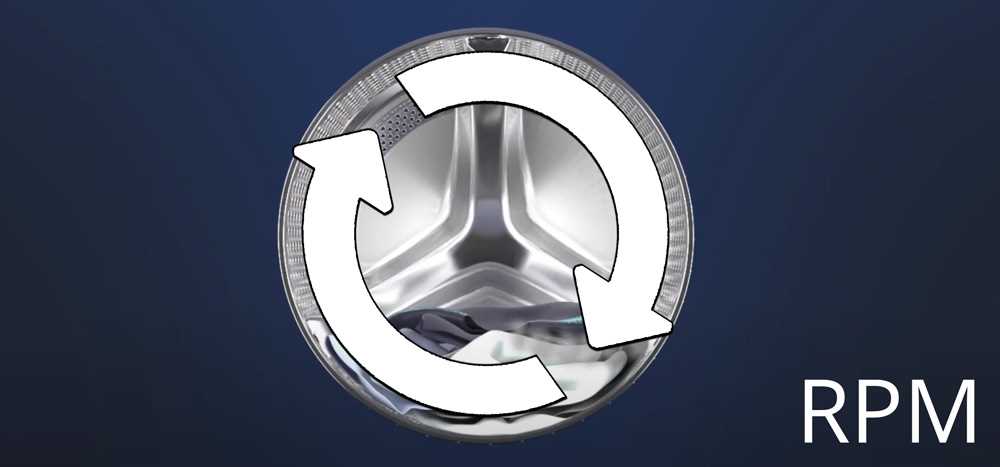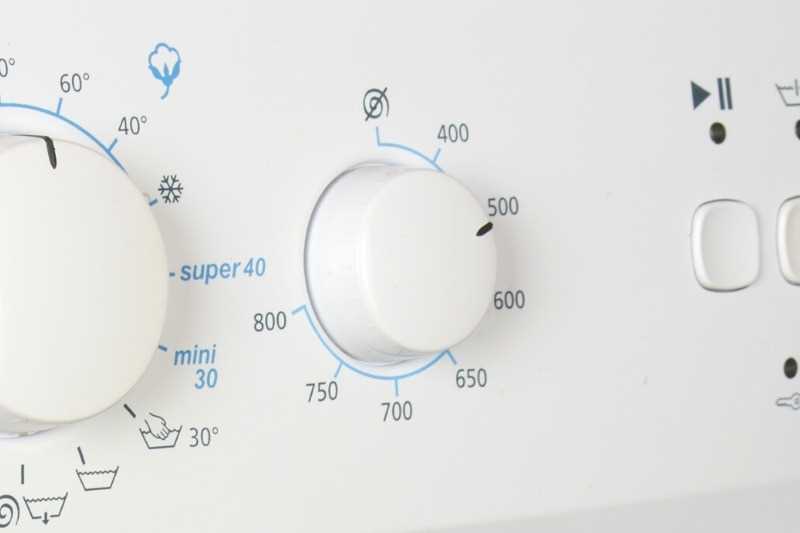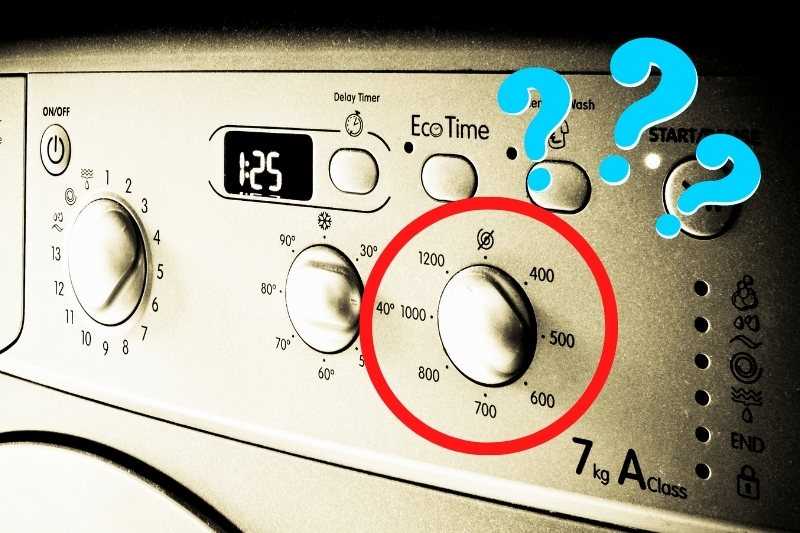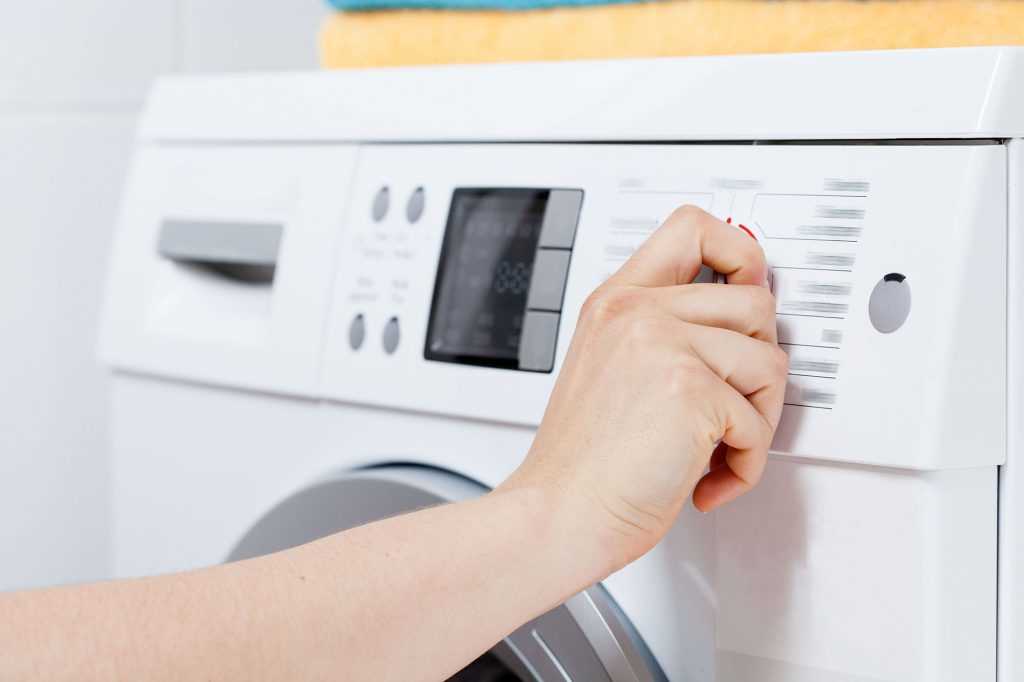




Finding the right spin speed for a gentle washing machine cycle can be a tricky task. On the one hand, you want to ensure that your clothes are thoroughly cleaned, but on the other hand, you don’t want them to be subjected to excessive force that could damage the fabric. In this article, we will explore how to choose the right spin speed for a gentle washing machine cycle, ensuring both cleanliness and protection for your garments.
When it comes to spin speed, it is important to consider the type of fabric you are washing. Delicate materials, such as silk or lace, require a much gentler spin speed compared to sturdier fabrics like denim or cotton. This is because high spin speeds can cause the fibers in delicate fabrics to stretch, tear, or break, leading to irreversible damage. It is crucial to read the care labels on your clothing items and follow the manufacturer’s recommendations for spin speed to prevent any mishaps.
Another aspect to consider when selecting the right spin speed is the type and size of the washing machine drum. Front-load washers typically have higher spin speeds compared to top-load washers. Therefore, if you have a front-load washer, it is even more important to be cautious and select a lower spin speed for delicate items. Additionally, the size of the drum is influential in determining the appropriate spin speed. A smaller drum will be gentler on clothes, as there is less space for them to move around and be subjected to high velocity spinning.
In conclusion, choosing the right spin speed for a gentle washing machine cycle is essential to protect your delicate garments from damage while still ensuring effective cleaning. By considering the fabric type, following care label instructions, and taking into account the type and size of your washing machine drum, you can achieve the perfect balance between cleanliness and garment preservation. Remember to always prioritize the longevity and quality of your clothes, as proper care during the washing process can significantly extend their lifespan.
Choosing the Right Spin Speed

When it comes to washing machines, spin speed is an important factor to consider. The spin speed of a washing machine refers to the number of rotations per minute (RPM) that the drum can reach during the spin cycle. Choosing the right spin speed can help ensure that your clothes are cleaned efficiently and gently.
Why is spin speed important?
The spin speed of a washing machine determines how much water is removed from your clothes during the spin cycle. Higher spin speeds can remove more water, resulting in shorter drying times. However, high spin speeds can also cause more wear and tear on your clothes.
On the other hand, lower spin speeds are gentler on your clothes but may require longer drying times. The right spin speed for you will depend on a few factors:
- The fabric type:
- The level of soiling:
- The desired drying time:
Delicate fabrics like silk and wool may require a lower spin speed to prevent damage. Heavy fabrics like jeans and towels can handle higher spin speeds.
Heavily soiled clothes may benefit from a higher spin speed to remove more dirt and stains. Lightly soiled clothes can be washed at a lower spin speed.
If you want your clothes to dry quickly, a higher spin speed can help remove more water. However, if time is not a concern, a lower spin speed may be more suitable.
How to choose the right spin speed?
The best way to choose the right spin speed for your washing machine is to consult the manufacturer’s instructions. They will usually provide recommendations based on the fabric type and level of soiling. However, here are some general guidelines:
- Check the fabric care labels:
- Consider the fabric type:
- Adjust for soiling level:
- Experiment and observe:
Most clothing items will have care labels that indicate the recommended wash and spin speed settings.
Delicate fabrics like silk and wool should be washed at lower spin speeds, while heavy fabrics like jeans and towels can handle higher spin speeds.
If your clothes are heavily soiled, consider using a higher spin speed to remove more dirt. For lightly soiled items, a lower spin speed may be sufficient.
If you are unsure, start with a lower spin speed and gradually increase it if necessary. Pay attention to how your clothes come out and adjust accordingly.
Conclusion
Choosing the right spin speed for your washing machine is essential to ensure your clothes are cleaned effectively without causing unnecessary damage. Consider the fabric type and level of soiling, consult the manufacturer’s instructions, and experiment to find the best spin speed settings for your needs. Remember, a gentler spin speed may result in longer drying times, while a higher spin speed can remove more water but might be harsher on your clothes.
Importance of Gentle Washing
When it comes to washing clothes, the spin speed plays a crucial role in maintaining the fabric quality and prolonging the lifespan of your garments. Gentle washing is especially important for delicate fabrics, such as silk, lace, and cashmere, as well as for clothing items with embellishments or intricate designs.
Here are a few reasons why gentle washing is essential:
- Preserves fabric quality: High spin speeds can cause excessive agitation, leading to fabric stretching, warping, or tearing. By opting for a gentle washing cycle, you can protect your clothes from unnecessary damage and maintain their original shape and texture.
- Reduces color fading: Intense spinning can cause color bleeding, resulting in faded or discolored garments. Gentle washing minimizes the risk of color transfer and helps preserve the vibrancy of your clothing items, keeping them looking new for longer.
- Safeguards delicate details: Delicate fabrics often feature intricate details, such as lace, embroidery, or beading. These embellishments can be easily damaged in a high-speed spin cycle. By selecting a gentle washing program, you can ensure that these delicate details remain intact.
- Prevents damage to closures and buttons: Buttons, zippers, and other closures can get damaged or cause snags when exposed to high spin speeds. Gentle washing helps prevent these closures from getting caught and significantly reduces the risk of damage.
- Increases garment longevity: By treating your clothes with care and opting for a gentle washing cycle, you can extend the lifespan of your garments. This not only saves you money in the long run but also reduces your environmental footprint by reducing the need for frequent clothing replacements.
Overall, gentle washing is essential for maintaining the quality and longevity of your clothes, especially those made from delicate fabrics or featuring intricate details. By choosing the right spin speed and using a gentle washing cycle, you can ensure that your garments stay in excellent condition, allowing you to enjoy them for years to come.
Understanding Spin Speeds
When it comes to choosing the right spin speed for a gentle washing machine cycle, it’s important to understand what spin speed is and how it affects the wash. Spin speed refers to the number of revolutions per minute (RPM) that the drum of the washing machine rotates during the spin cycle.
Why Spin Speed Matters

The spin speed of a washing machine can have a significant impact on the quality of the wash and the condition of your clothes. Here are some key reasons why spin speed matters:
- Removes Excess Water: Higher spin speeds effectively remove more water from the clothes, resulting in shorter drying times and energy savings.
- Better Stain Removal: Faster spin speeds can help remove tough stains by agitating the clothes more vigorously during the spin cycle.
- Gentler Washing: Lower spin speeds are more suitable for delicate fabrics, as they reduce the risk of damage or stretching.
Understanding Spin Speed Options

Most washing machines offer a range of spin speed options, typically ranging from 400 to 1600 RPM. The specific spin speeds available may vary depending on the model and brand of the washing machine. Here are some commonly found spin speed options:
- 400-800 RPM: This is the lowest spin speed option and is suitable for delicate fabrics that require extra care.
- 800-1000 RPM: This spin speed range is suitable for most everyday fabrics and provides a good balance between washing performance and gentle care.
- 1000-1200 RPM: This spin speed range offers faster drying times and better stain removal, making it suitable for slightly more robust fabrics.
- 1200-1600 RPM: This is the highest spin speed option and is ideal for heavily soiled clothes or items that require maximum water extraction.
Choosing the Right Spin Speed
When choosing the right spin speed for a gentle washing machine cycle, consider the fabric type, level of dirt, and desired drying time. Here are some general guidelines:
- For delicate fabrics, use a spin speed of 400-800 RPM.
- For everyday fabrics and lightly soiled clothes, a spin speed of 800-1000 RPM is usually sufficient.
- For heavily soiled clothes and faster drying times, opt for a spin speed of 1000-1200 RPM or higher.
Remember to always refer to the manufacturer’s guidelines for specific recommendations for your washing machine model.
Conclusion
Understanding spin speeds and their impact on the wash can help you choose the right spin speed for a gentle washing machine cycle. By selecting the appropriate spin speed, you can ensure effective cleaning while minimizing the risk of damage to your clothes.
Factors to Consider
When choosing the right spin speed for a gentle washing machine cycle, there are several factors to consider. These factors can help ensure that your clothes are cleaned effectively while minimizing any potential damage to delicate fabrics.
Type of Fabric

One of the most important factors to consider is the type of fabric you are washing. Delicate fabrics such as silk, lace, or cashmere require a slower spin speed to prevent stretching or tearing. On the other hand, sturdier fabrics like denim or cotton can withstand a higher spin speed.
Level of Soiling
The level of soiling on your clothes can also affect the appropriate spin speed. Heavily soiled garments may require a higher spin speed to effectively remove dirt and stains. However, for lightly soiled items, a lower spin speed may be sufficient and more gentle on the fabric.
Size and Weight of the Load
The size and weight of the load are important considerations when selecting the spin speed. Larger and heavier loads may require a higher spin speed to ensure that water is effectively removed from the garments. However, for smaller or delicate loads, a lower spin speed may be more appropriate to prevent damage to the fabrics.
Quality of the Washing Machine
The quality and capabilities of the washing machine itself should also be considered. Some washing machines have different settings and spin speed options, allowing you to customize the cycle according to your specific needs. It is important to consult the instruction manual or contact the manufacturer for guidance on the recommended spin speeds for different fabrics.
User Preference

Finally, user preference also plays a role in choosing the right spin speed for a gentle washing machine cycle. Some individuals may prefer a higher spin speed to ensure maximum water extraction and shorter drying times. Others may have a preference for lower spin speeds to prioritize the care and protection of their delicate fabrics.
| Factors | Considerations |
|---|---|
| Type of Fabric | Choose slower spin speeds for delicate fabrics. |
| Level of Soiling | Heavily soiled garments may require higher spin speeds. |
| Size and Weight of the Load | Larger and heavier loads may require higher spin speeds. |
| Quality of the Washing Machine | Consult the instruction manual or contact the manufacturer for guidance. |
| User Preference | Consider personal preference for spin speed selection. |
Benefits of a Gentle Washing Machine Cycle
A gentle washing machine cycle can provide various benefits for your clothes, your machine, and the environment. By selecting a gentle spin speed, you can:
- Protect delicate fabrics: Delicate fabrics such as silk, lace, or wool require a gentle washing machine cycle to prevent damage. A lower spin speed can minimize friction and reduce the risk of stretching or tearing these delicate materials.
- Prolong the lifespan of your clothes: Excessive spinning can cause wear and tear on your clothes over time. By opting for a gentle cycle, you can minimize the stress on fabrics and prolong their lifespan.
- Reduce wrinkles: High spin speeds can result in significant wrinkles, especially on delicate fabrics. Choosing a gentle cycle can minimize the formation of wrinkles and make the ironing process easier.
- Save energy: Gentle cycles typically use less energy compared to higher spin speeds. By using a lower spin speed, you can reduce the amount of energy required to dry your clothes afterward, leading to potential energy and cost savings.
- Preserve the environment: By opting for a gentle cycle, you can contribute to a more sustainable lifestyle. Reduced energy consumption and lowered water usage can have a positive impact on the environment.
Overall, a gentle washing machine cycle offers several advantages, including fabric protection, extended clothing lifespan, reduced wrinkles, energy savings, and environmental preservation. Consider using a gentle cycle for your delicate garments to ensure optimal care and performance.
Tips for Choosing the Right Spin Speed

When it comes to choosing the right spin speed for your gentle washing machine cycle, there are a few factors to consider. The spin speed plays a crucial role in ensuring that your delicate garments are handled with care while still being properly cleaned. Here are some tips to help you make the right choice:
1. Read the garment labels
Before selecting a spin speed, always check the care label on your garments. The label will provide information on the recommended washing instructions, including the maximum spin speed that is safe for the fabric. Following these guidelines will help prevent damage to your delicate items.
2. Consider the fabric type
Different fabrics require different spin speeds. Delicate fabrics like silk or lace should be washed at lower speeds to avoid stretching or tearing. On the other hand, more durable fabrics like cotton or denim can withstand higher spin speeds without any issues. Consider the fabric type when choosing the appropriate spin speed for your cycle.
3. Evaluate the level of dirt and stains
The level of dirt and stains on your garments can also influence the spin speed you choose. If your clothes are heavily soiled, a higher spin speed may be necessary to ensure effective cleaning. However, if your items only have light dirt or stains, a lower spin speed will be sufficient to achieve a gentle and thorough wash.
4. Test with a small load
If you’re unsure about the appropriate spin speed for a particular garment or fabric, it’s always a good idea to test with a small load first. This will allow you to assess the results without risking damage to a larger batch of clothes. Adjust the spin speed accordingly based on the outcome of the test load.
5. Take advantage of adjustable spin speeds

Many washing machines offer adjustable spin speeds, allowing you to customize the spin speed for each cycle. Take advantage of this feature to better control the washing process. Start with a lower spin speed for delicate items and increase it gradually if needed.
6. Use lower spin speeds for delicate items
As a general rule, it’s safer to err on the side of caution when choosing the spin speed for delicate items. Opting for a lower spin speed will minimize the risk of damage to your clothes, ensuring that they are treated gently throughout the entire washing process.
By following these tips, you can choose the right spin speed for your gentle washing machine cycle, ensuring that your delicate garments are cleaned effectively without being subjected to unnecessary wear and tear.
FAQ
What is spin speed in a washing machine?
Spin speed is the speed at which the drum of a washing machine rotates during the spin cycle. It is measured in revolutions per minute (RPM) and determines how quickly water is extracted from the clothes.
How do I choose the right spin speed for a gentle washing machine cycle?
The right spin speed for a gentle washing machine cycle depends on the type of fabric you are washing. Generally, it is recommended to select a lower spin speed for delicate fabrics like silk or lace, as higher spin speeds may damage or stretch the fabric. A spin speed around 600-800 RPM is usually suitable for gentle cycles.
What happens if I use a high spin speed for a gentle washing machine cycle?
If you use a high spin speed for a gentle washing machine cycle, there is a higher chance of damaging the delicate fabric. High spin speeds can cause stretching, wrinkling, or even tearing of the fabric. It is best to follow the manufacturer’s instructions and select a lower spin speed for delicate items.
Can I use the same spin speed for all types of fabrics?
No, it is not recommended to use the same spin speed for all types of fabrics. Different fabrics require different levels of agitation and extraction. Delicate fabrics like silk or wool should be washed using a lower spin speed to avoid damage, while sturdier fabrics like cotton can tolerate higher spin speeds. It is important to refer to the garment care labels and adjust the spin speed accordingly.











